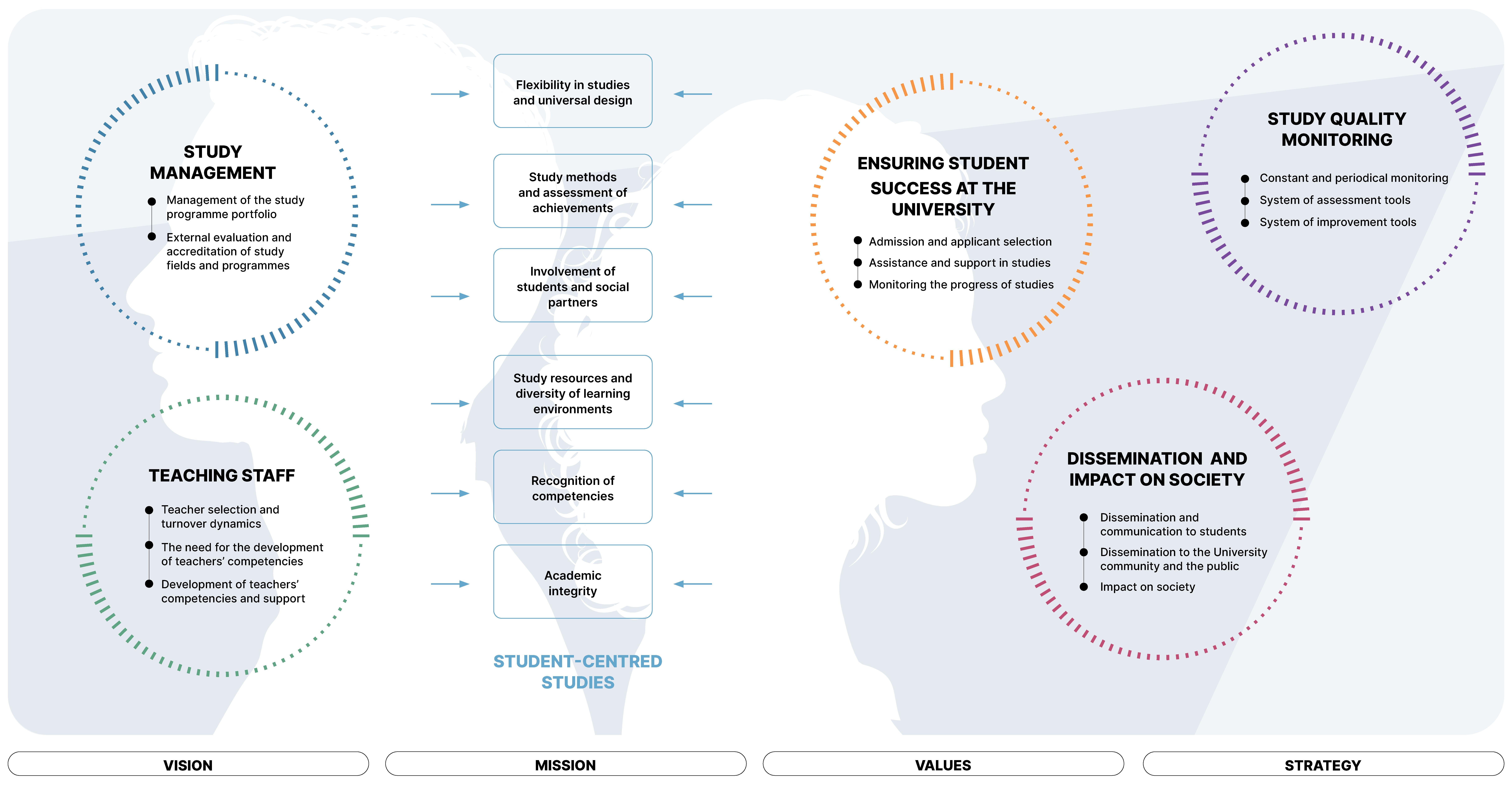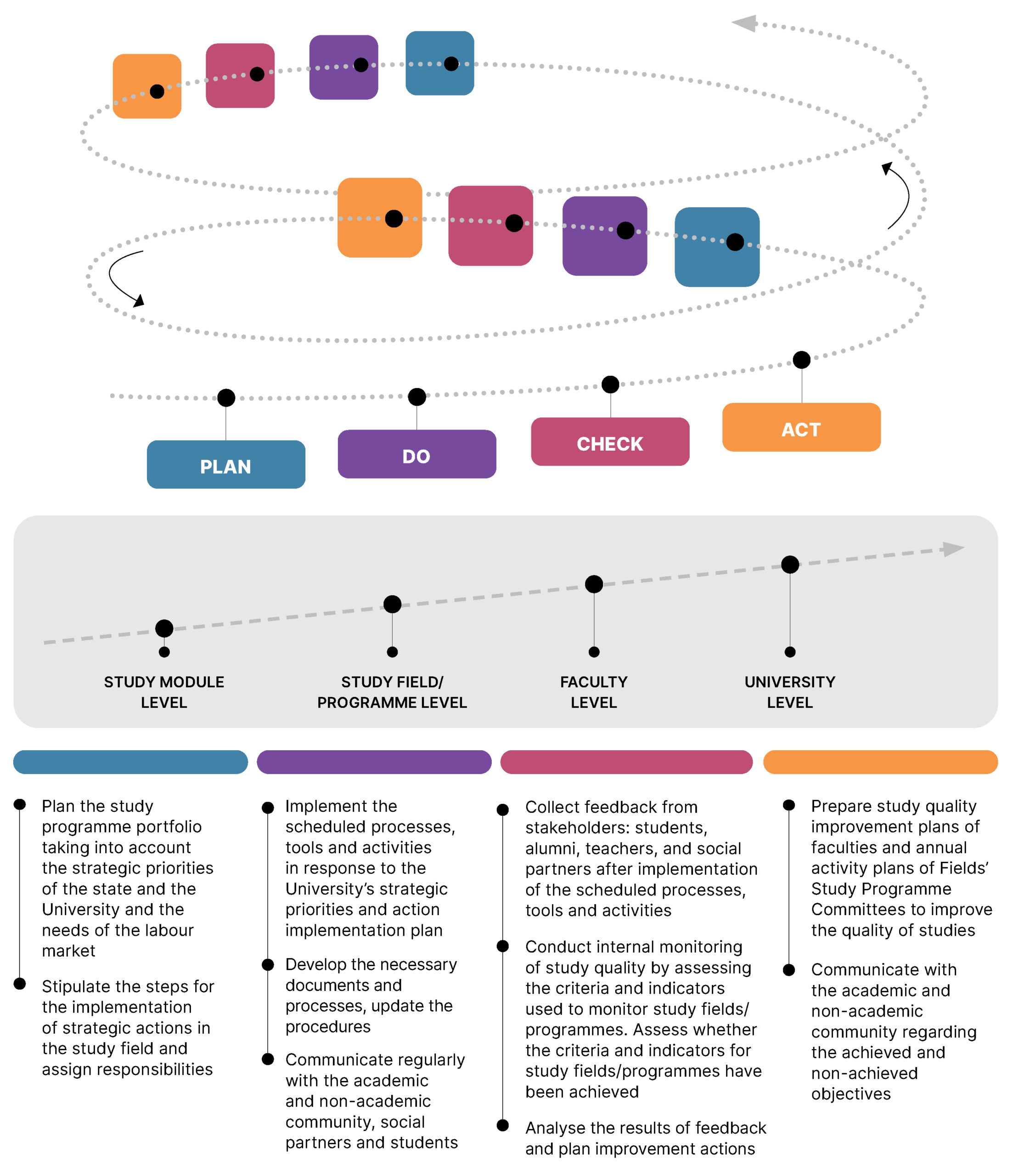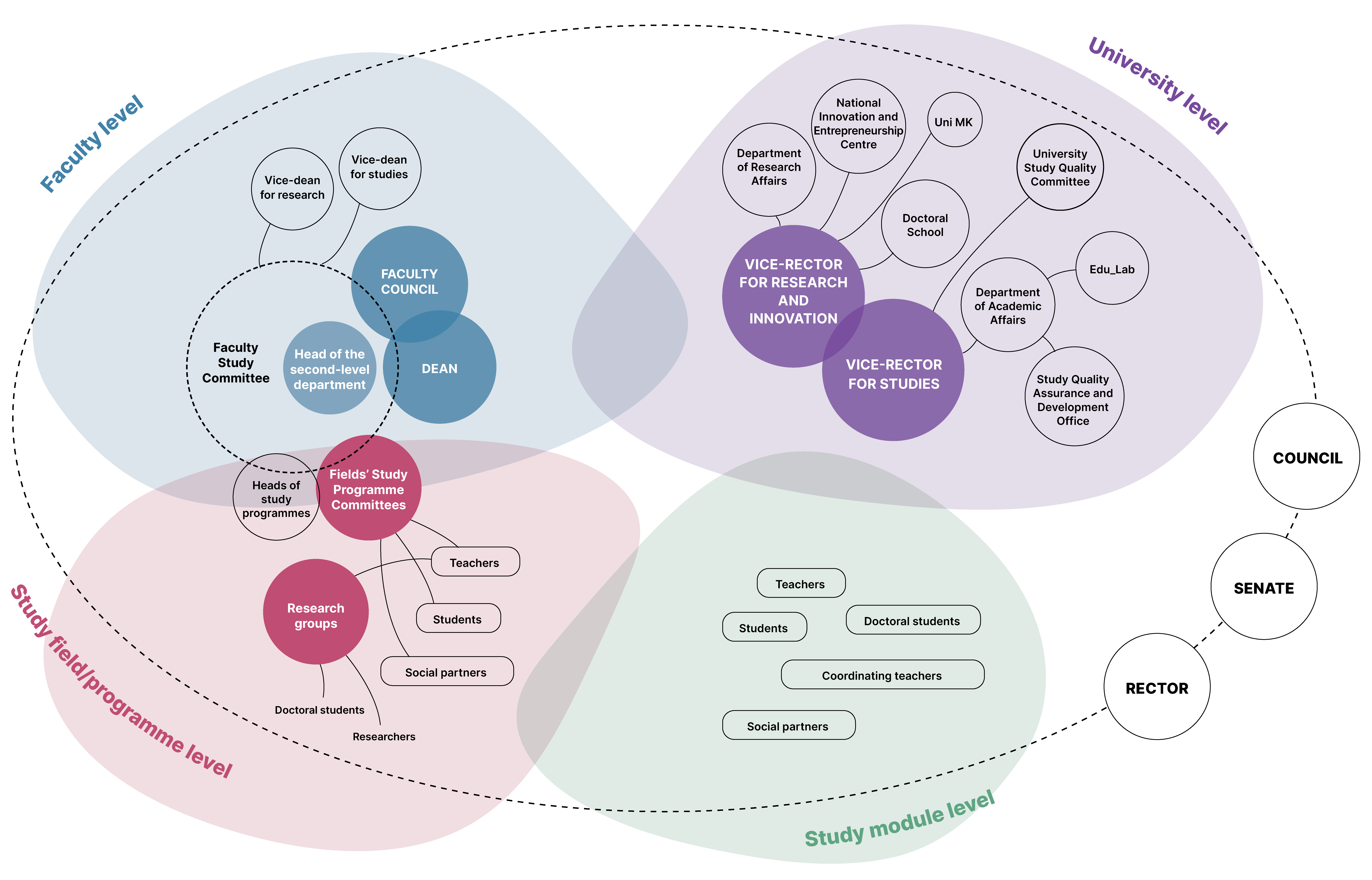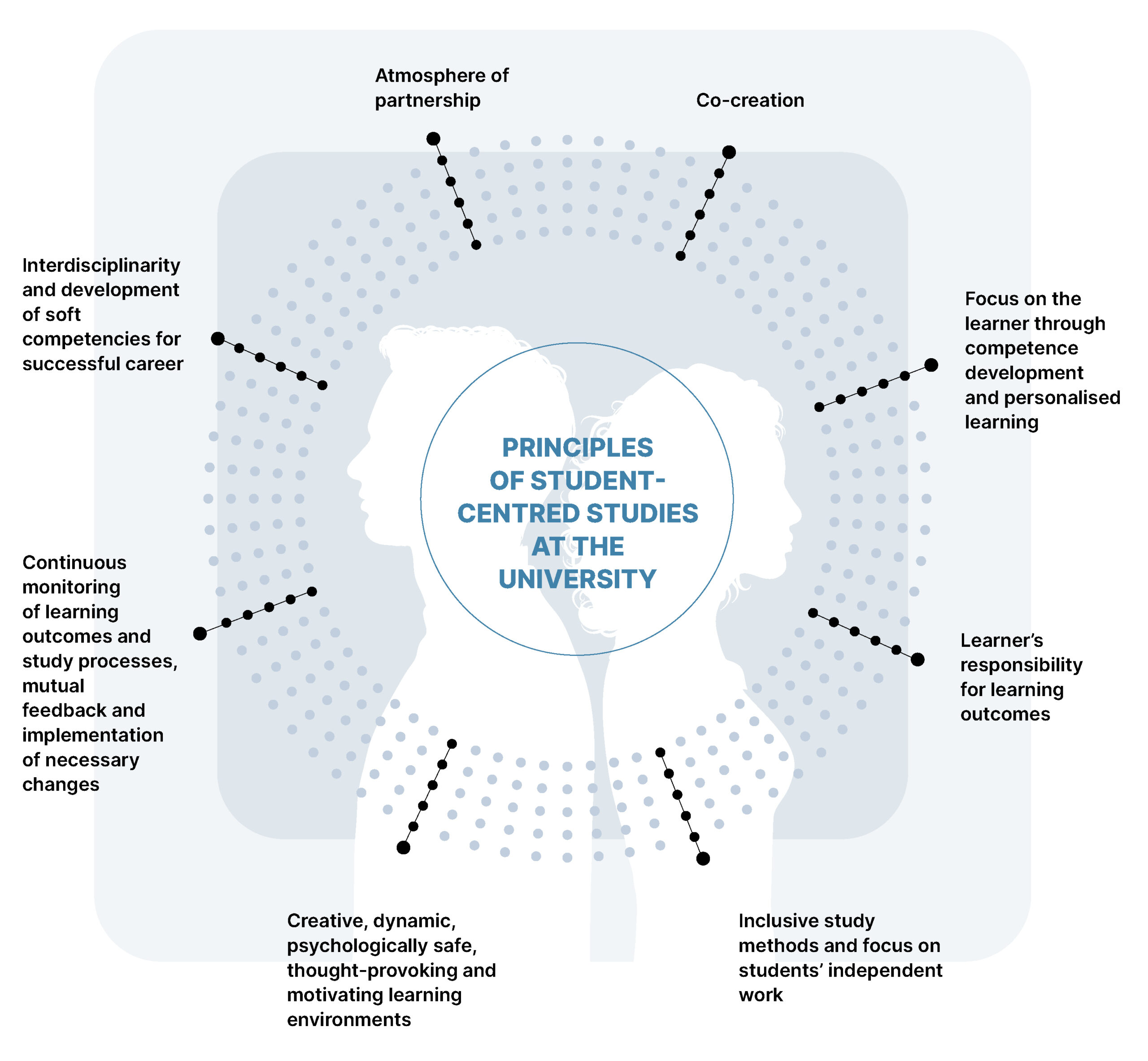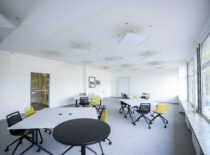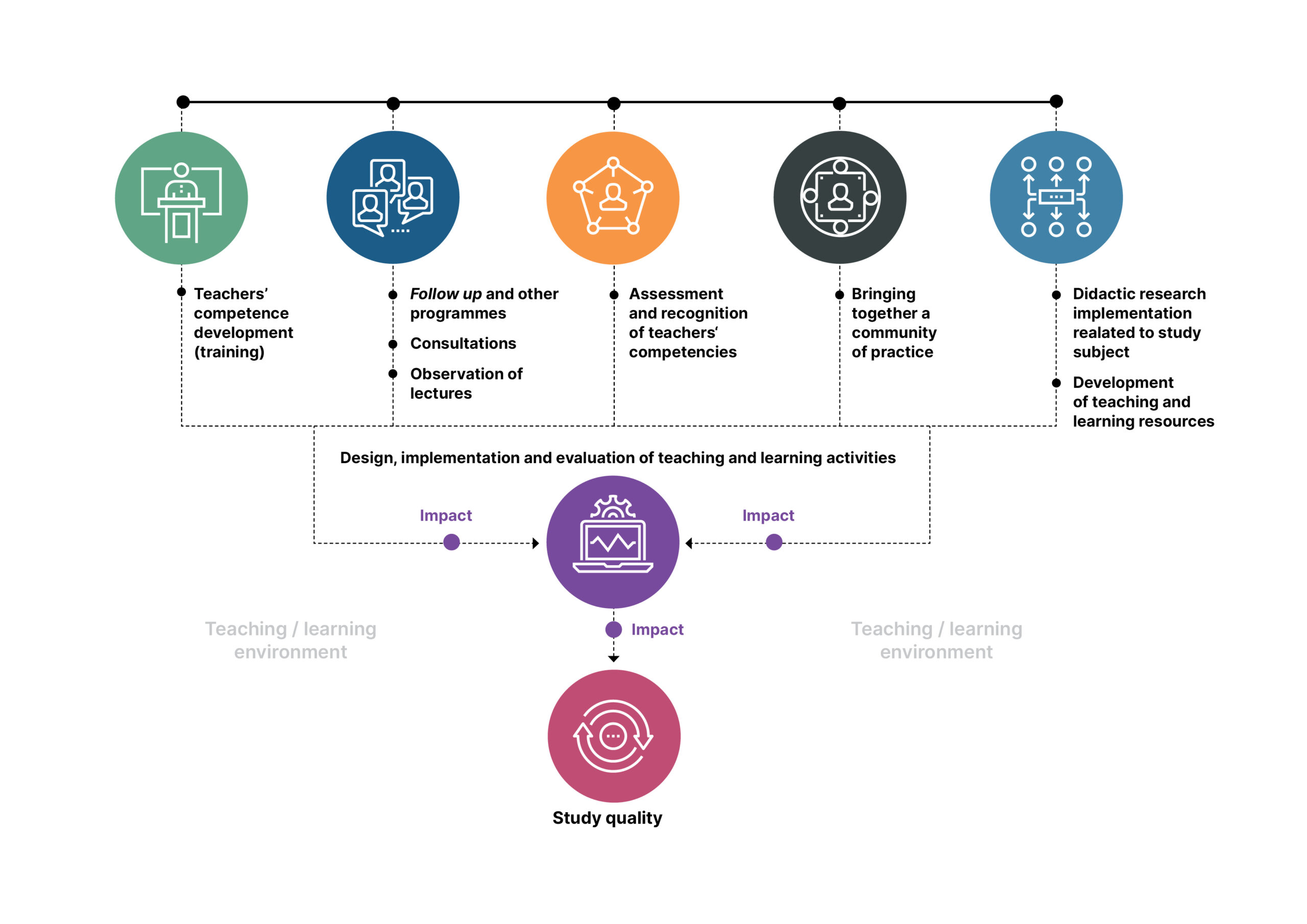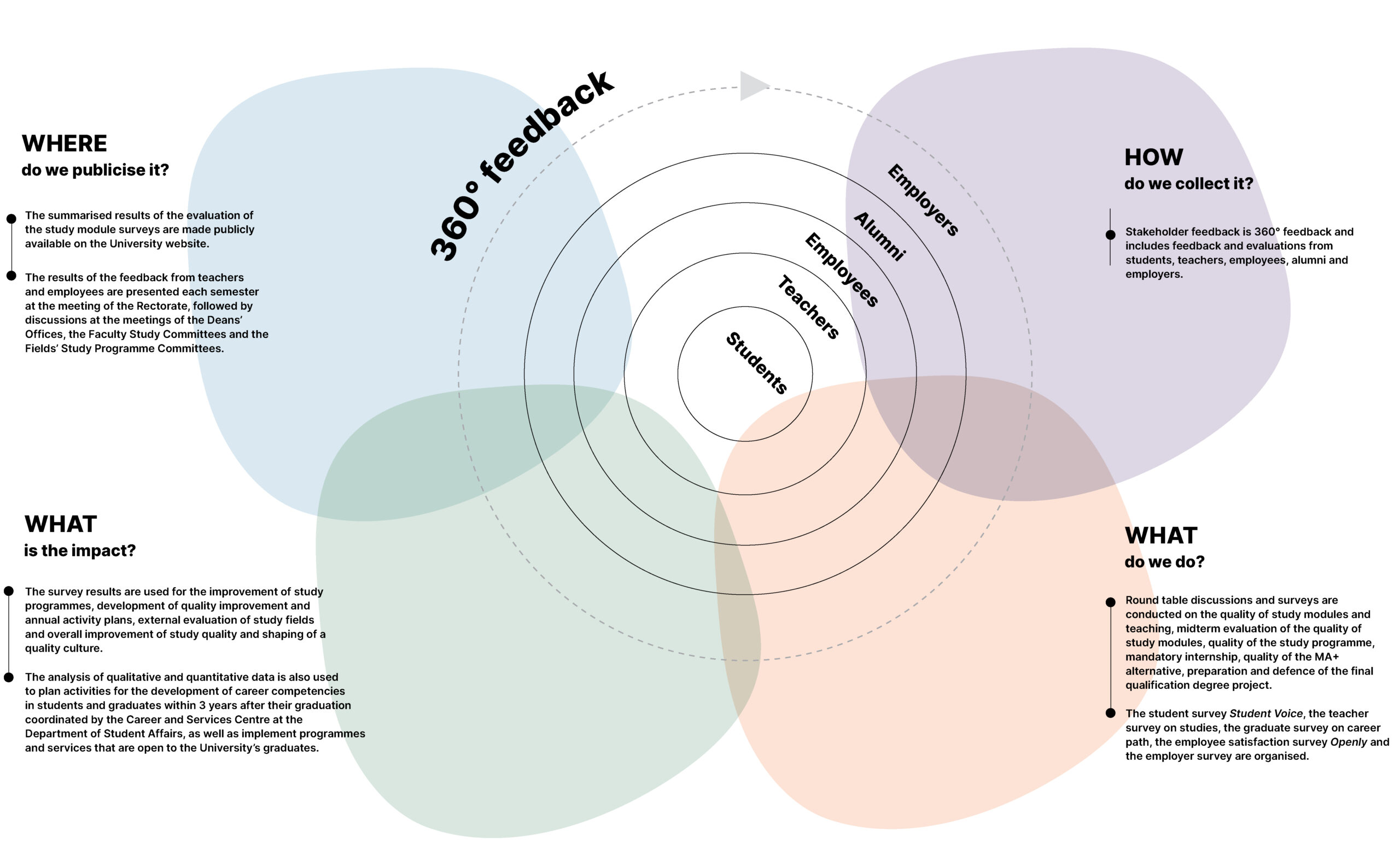Internal Study Quality Assurance System
The University has developed and is implementing internal quality assurance system which aims to identify the processes, tools and activities of the internal study quality assurance system that are applied at Kaunas University of Technology while involving the entire community of Kaunas University of Technology in quality assurance and fostering a quality culture.
The internal study quality assurance system is based on the Standards and Guidelines for Quality Assurance in the European Higher Education (ESG), the main higher education policy documents of the European Union, the European Qualifications Framework, the European Standards and Guidelines and the main laws and legislation governing higher education in the Republic of Lithuania.
The University’s study process and internal study quality assurance system are based on the student-centred approach where learning is at the heart of the system. The University’s activities, processes, environment and outcomes influence and promote learning.
The University’s internal study quality assurance system is based on six key components: study management, student-centred studies, teachers, ensuring student success, study quality monitoring, and publicity and impact on society.


